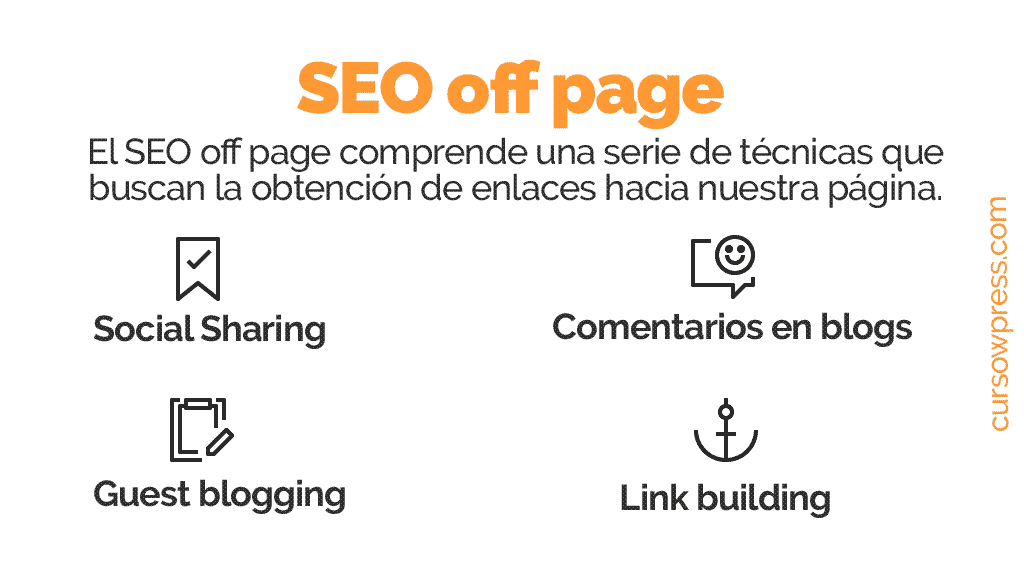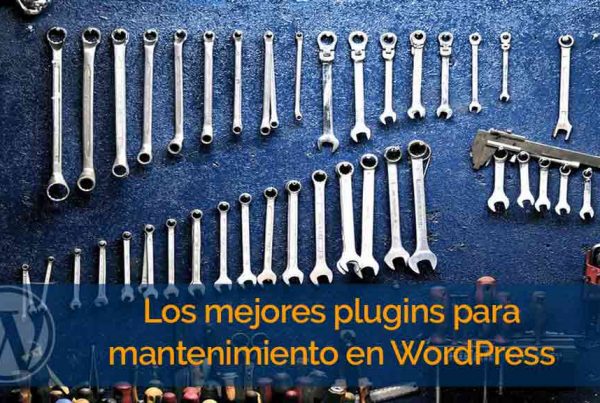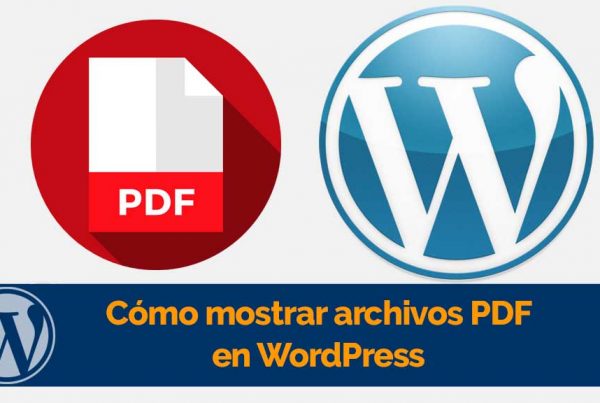The SEO in the world of web page administration, either in WordPress or in any other content manager, is a factor very important.
That is why within the arsenal of skills from a webmaster Search Engine Optimization occupies a fundamental place.
So if you wonder what we are left with if SEO is a very important factor? or one foundation skill? Keep reading because we show you:
What is actually SEO?
In a previous installment we defined SEO as:
“a process for improve the visibility of a website in organic results (unpaid) from search engines (such as Google)”
And it is a very precise definition.
But since you surely want to know what relationship SEO has to the real world, let us explain it to you with an example:
Let's say you wrote a thousand word article on your WordPress blog about how to care for a bonsai.
You want your readers to learn how to take better care of their miniature plants than anyone else.
That's why you need to find your brand new article.
The most common route users use to get to the information they need on the internet is through a search engine.
Come on, a lifelong search engine like Google, Yahoo!, Bing or DuckDuckGo.
And for this to happen, it is necessary that every time someone types in the bar of their favorite search engine the phrase how to care for a bonsai be your article first to appear in results.
SEO in this case would be everything what you do to the article so that it is positioned among the first places thrown by the search engine.
You can take a look at this post dedicated to the subject if you want to delve into SEO optimized content writing.
Why do you need to position yourself in the first places of the search engine?
Simple.
Because you want them to read your articles.
You want hundreds of thousands of Internet users enter your website and read and share your content.
You want those visitors to become readers and you want those regular readers to trust your brand and become your clients: buy your products, hire your services and recommend you to their acquaintances.
And that will be possible to the extent that the content is of quality and is positioned at the top of the search engine.
You need to be on the first page.
To give you an idea of the relevance of positioning, we tell you:
The first page of search results gets more than 60% of web traffic.
That means that hardly anyone reads the second page. Let's not say the third. Or the fourth.
So how do you get on the first page?
Applying SEO strategies.
SEO in WordPress has two levels
Yes, SEO in WordPress (and outside of it) is done on two levels:
On page and off page.
SEO on page
It refers to all the content optimization actions that are carried out within of a web.
We have talked about SEO on page in:
And considering that a very high percentage of internet traffic is made from mobile devices, it is convenient that your site is compatible with this type of technology.
For that you need your WordPress site to have a responsive or adaptive template. If you want to know more you can take a look at:
SEO off page
The SEO off page for its part has to do with the actions that are still applied off page the web that you need or want to make the most of contribute to your search engine optimization.
Warning
As a disclaimer – disclaimer
Some of the techniques of SEO off page could be somewhat risky and put the health of the positioning of your page or blog.
If they are not carried out with the necessary care google could penalize you.
So if you enter the grounds of the black hat seo you must know that you go at your risk, the chances of a penalty are very high.
Instead, if you follow the path of withe hat SEO there are no major risks.
A section of black and white hats
In SEO jargon, black hat refers to all those actions that even when improve positioning of a page openly break the rules set by google. On the other hand the withe hat SEO It consists of following the guidelines to the letter.
How to do off-page SEO
SEO off page comprises a series of techniques that seek the achievement of links to our page.
But before mentioning the techniques used to achieve links, it is important to remember that you first need to:
- The page is optimized.
Previously worked on aspects of the SEO on page, the template is responsive, the blog has buttons to share on social networks and other aspects that we have discussed with you before at length.
- The content is of quality.
This point is key if we want them to share our content and thus obtain hundreds of organic links it is essential that the content is of quality, that adds value, that serves to solve a problem, responds to a concern...
Now among the techniques for achieving links we have:
Social Sharing – Work in social networks
It's okay if you create your own facebook fanpage, your group on G+. The idea here is to get users to naturally share your work from the different social networks.
blog comments
We remember one of the premises or pillars of SEO off page: the quality.
If you're going to leave a comment on a blog with a link to your website It is because your comment will be useful for other readers and in turn will add additional information that complements what was posted at the beginning. If he spam is bad.
Guest blogging
Guest blogging is based on writing an original post on another blog. Preferably one that you know a lot, on a subject that you master.
Your post at the same time has to add a lot of value.
Contact bloggers in your niche who accept guest posts. Don't cut yourself or feel intimidated. Email them, be polite.
link building
Link building is an extensive topic. Although the principle is simple:
Get quality links
In practice it is not so easy.
The links can be found via networking or even in link markets where you must be very careful.
To end
SEO is to blogging and websites what embers are to a fire.
Exciting and extensive topic. Only from link building could we put together a book the size of an encyclopedia of the fattest.
If you are just starting out don't feel intimidated, with practice and the right training you can become a WordPress expert. For that you have the best WordPress course in Spanish.






